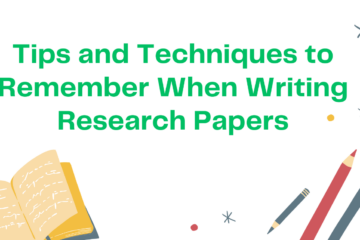Beyond Algorithms: The Irreplaceable Human Element in College Writing

The proliferation of artificial intelligence has led to remarkable advances in many fields. AI programs can now replicate human activities from playing chess to driving cars. However, when it comes to producing high-quality writing, particularly complex assignments like college term papers, AI still falls short of matching the human touch. There are fundamental aspects of good writing that algorithms simply cannot replicate.
Elevate Your Writing with Our Free Writing Tools!
Did you know that we provide a free essay and speech generator, plagiarism checker, summarizer, paraphraser, and other writing tools for free?
Access Free Writing ToolsThe Art of Formulating a Thesis
The foundation of any strong paper is its thesis – the central argument or premise that will be supported throughout. Skillfully crafting an insightful, nuanced thesis requires uniquely human abilities. Create a concise and relevant thesis statement using our advanced thesis generator.
While AI can generate topic sentences, determining which perspective is most interesting or fertile for deeper analysis draws on intuitions born from lived experience. Subtleties like framing a novel thesis by building on or refuting established ideas demonstrate the creative thinking exclusive to human cognition.
Structuring Logical Flow
Once the thesis is established, organizing research and analysis into a logical flow is the next challenge. A well-structured paper builds momentum by connecting each point to the larger argument. Human writers intuitively emphasize certain passages for impact, rearrange paragraphs during editing, and insert transitions that guide readers along on the intellectual journey.
The fluid, intuitive sense of narrative and rhetorical pacing underpinning strong organization comes from our innate storytelling capacity.
Crafting Authentic Voice
An academic paper strives to achieve an authoritative but personable tone. While AI can string together coherent sentences, it lacks the empathy and perspective needed to compose in a voice that sounds human.
The subtle inflections that build a unique authorial voice – wry asides, thoughtful reflection, even moral outrage when appropriate – are generated by the self-awareness, values, and worldview that make us human. AI lacks life experiences like growing up, falling in love, or overcoming challenges that impart authenticity.
Thinking Originally
Human creativity and imagination allow for original thinking that sets excellent writing apart. Making unexpected connections across disciplines, using metaphors, proposing unorthodox solutions – these capabilities spring from the infinitely creative well of human cognition.
While AI can synthesize existing ideas, it cannot access the unfettered imagination that lets humans see old problems in radically new ways. These cognitive leaps push boundaries and trailblaze new terrain in any field.
Conveying Nuance and Subtlety
Unlike humans, AI lacks the innate ability to pick up on and convey nuanced ideas, inferences, and implications in writing.
While algorithms can identify explicit facts and concepts, they lack the innate human capacity to pick up on nuanced ideas, inferences, and implications. AI content detection may help spot duplicate text, but it cannot grasp subtle shades of meaning the way humans intuitively do. A human writer builds complex arguments by making logical leaps between points, reading between the lines, and drawing on tacit knowledge gained from experience.
AI cannot replicate our aptitude for writing with nuance because it does not actually infer relationships or absorb insights as we do. Subtlety in writing emerges from the innate human capacity for sophisticated cognition and interpretation.
Achieving Stylistic Elegance
The hallmark of sophisticated writing is refinement of language, or eloquence. Humans have an intuitive sense of rhetorical elegance – balanced cadences, artful turns of phrase, and rhythmic variances that please the ear.
We grasp stylistic techniques like alliteration, assonance, and parallelism that add aesthetic appeal to arguments. AI can produce grammatically sound text but lacks appreciation for what makes language aesthetically elevating. The capacity to craft elegant prose comes from our artistic sensibility and intuitive taste. We shape words to resonate on a primal human level regarding beauty. AI has no concept of artistic elevation or soulful resonance.
Mastering Metacognition
Strong writing exhibits metacognition – the ability to think about one’s own thought processes. Human writers monitor their progress to adapt strategies flexibly, notice gaps in logic, and refine their communication. We reflect on choices to strengthen the coherence between ideas, tone, and style. AI lacks the higher order thinking enabling intentional control of cognitive processes.
Without dynamic reflection, AI cannot question its own arguments to improve reasoning. Essential metacognitive skills like critical self-assessment and strategic revision are fundamentally human aptitudes. Our innate reflexivity empowers the fine-tuning that transforms good writing into great.
Conveying Emotion and Passion
Writing with conviction requires the ability to communicate real emotion. Human writers inject passion into their arguments by drawing on lived experiences that shaped their perspectives. Our passions and personalities color our prose. AI lacks the emotional intelligence to write with genuine feelings.
Without knowing anger, joy, sadness or empathy, it cannot transmit the passion which convinces readers of a position’s merit. Academic writing informs but also seeks to stir the heart as well as the mind. The emotional resonance distinguishing powerful prose comes from our human capacity to translate truths into felt experiences.
Exhibiting Interdisciplinary Thinking
Truly compelling academic writing synthesizes knowledge across disciplines to drive innovation. Human cognition fluidly bounds across fields, pulling together disparate concepts to catalyze new insights. We reference literature, history, and the arts to enrich our interpretations. AI lacks this interdisciplinary perspective; its knowledge remains siloed. While algorithms can deliver competent prose on a defined topic, they cannot enrich ideas by connecting multidisciplinary threads.
The capacity to reach outside domains to craft interdisciplinary narratives is exclusive to human ingenuity. We integrate diverse influences, the hallmark of visionary thinking.
The Rewards of Deep Focus
Finally, the sustained focus that writing requires to marshal ideas and refine prose is uniquely human. While AI can instantaneously generate content, human writers invest time sitting with concepts and narratives.
Deep intellectual focus allows for synthesizing research, weighing prose choices, and stepping back to see the bigger picture. We meander down side paths before bringing together disparate threads into an inspired whole. This slow percolation enables breakthroughs and complex, multilayered arguments that AI simply cannot cultivate.
So while artificial intelligence has made astonishing progress, human creativity, perspective and cognitive flexibility remain necessary to produce writing that is nuanced, insightful and compelling. As advanced as algorithms have become, the magic of the human touch in writing withstands replication.
Certain intangible qualities that emerge from our consciousness and life journeys cannot be simulated with code. Students aiming to master the art of the college paper must look within themselves to tap into the deep resources that make their writing inimitably their own. There are no shortcuts – the path to excellence lies through embracing our own voices.

Special offer! Get 20% discount on your first order. Promo code: SAVE20

